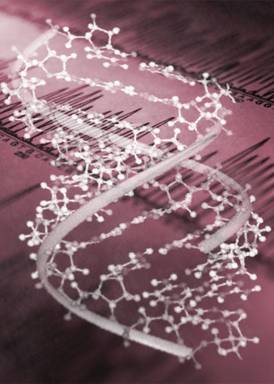
|
|
| Find Services | News & Information | Rules & Regulations | Business Information |

“This site is currently under construction. Check back often for updates.”
Genetic Services
Your family history holds key information about your past that can unlock clues about you or your children’s future health. Genetics is the branch of medicine that looks at how your family’s genes play a role in causing a disease or birth defect. Some people have increased chances of health problems such as cancer or heart disease because of their family’s genes. Almost all disease is a result of the interaction between our genes and the environment. Genetic specialists give people information about inherited diseases and how they are passed down in their family. Genetic services can include physical exams, health histories, lab tests, and genetic counseling. Genetics may be hard to understand, but we can help make it clearer. Genetic counselors and medical geneticists are specialists that are available to provide in-depth counseling about heritable disorders and figure out if you could be at risk.
Genetics can have an influence at any point in our lives.
Texans look for genetic services before and during pregnancy to see if their baby is at a higher risk for birth defects and genetic conditions or if a medication or drug could affect the growth of their baby. Birth defects are related to both genetic and environmental factors. A genetics professional can help if a birth defect is detected during a pregnancy. In addition, the Department of State Health Services (DSHS) operates a Teratogen Information Service to assist Texans in finding out if a drug or environmental exposure could affect their pregnancy. A teratogen is defined as any medication, chemical, infectious disease or environmental exposure that could affect the growth of a baby.
Genetic services are also important for newborns. All newborns in Texas are tested at birth for 28 genetic diseases. Newborn screening is an important tool for the early identification and treatment of certain disorders. In the United States, it is estimated that 3-5% of all babies are born with a genetic condition, birth defect or mental retardation. Five to ten percent of all children have learning disabilities or mental retardation. Genetic factors play a role in many forms of mental retardation. If the exact cause of the mental retardation can be figured out it could alter the medical management of the child.
Genetic services have now evolved into testing adults for a genetic predisposition for such disorders as cancer and heart disease. Understanding the genetic causes of disease can help to develop better prevention and treatment strategies. Knowing your genetic health history can allow your doctor to see the bigger picture.
It is important for all Texans to know their family medical history. Many health problems run in families because families live in the same environment, share the same habits, lifestyles and genes.
The US Surgeon General encourages all families to learn more about their health history. A computer tool, called “My Family Health Portrait” has been developed to help families record their family tree and medical history .
Do you know someone with a genetic disorder?
- 3% of all babies are born with a birth defect.
- 1 in 9 children admitted to the hospital has a genetic disorder.
- 1 in 12 adults admitted to the hospital has a genetic disorder.
- 1 in 22 people in the United States has a genetic disorder.
- 20-30% of all infant deaths are due to genetic disorders.
Department of State Health Services
Genetic Services
Newborn Screening Unit
Mail Code 1918
PO Box 149347, Austin, Texas 78714-9347
1100 West 49th Street, Austin, Texas 78756-3199
1-800-252-8023
Fax: 512-458-7593
Last Updated August 24, 2009
| Contact Us | Compact with Texans | File Viewing Information | Homeland Security | Internet Policy | Site Map | Statewide Search | Texas Online |